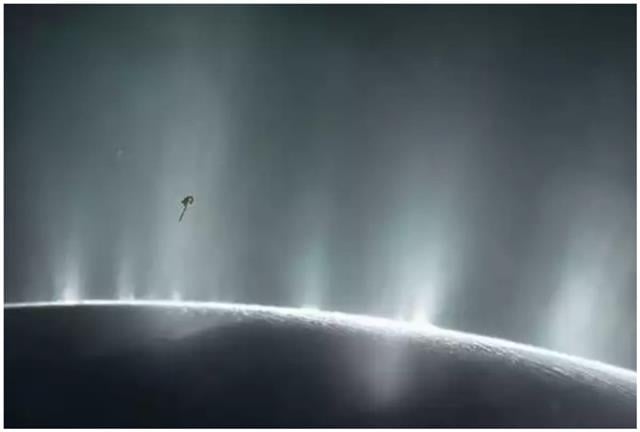
a lot An important discovery which will give a better picture of Saturn’s moon, and Enceladus And whether it hosts life did the space telescope James Webb (JWST). In fact, the Moon is spewing out a huge cloud of water vapor, much larger than previously detected.
according to Nature.com This massive cloud may contain the chemical ingredients for life, which escape beneath the moon’s icy surface.
In 2005, her spacecraft NASA Cassini discovered icy particles emitting from the subterranean ocean of Enceladus through cracks in the moon’s surface.
However, JWST shows that its content clouds It was hurled farther than previously thought – much deeper into space than the size of Enceladus itself.
“It’s enormous,” she said. Sarah Peggy A planetary astronomer at NASA’s Goddard Space Flight Center in Greenbelt, Maryland, May 17 at a conference at the Space Telescope Science Institute in Baltimore, Maryland.
salty ocean
Enceladus excites them Astrobiologists Because it is one of the few “ocean worlds” in the solar system, which makes it one of the best places to look for alien life. The salty ocean beneath Enceladus’ outer ice cap is a potential refuge for life, which could be sustained by chemical energy in hydrothermal vents on the ocean floor.
And the material emitted from Enceladus is a direct link to this potential alien environmental system. Cassini has flown through Enceladus’ plumes many times, measuring ice grains and life-friendly chemicals such as methane, carbon dioxide and ammonia.
But it was necessary James Webb Telescope located at a distance 1.5 million km from Earth, to discover something Cassini cannot see from its position in the rings. While Cassini can detect ice grains that don’t travel far from the surface, the space telescope has a broader perspective and sensitive instruments that can pick up faint signals of gases around Enceladus.
On November 9, 2022, James Webb takes a peek at Enceladus. Just 4.5 minutes The data revealed a large, very cold cloud of water vapor. The upcoming publication will specify the amount of water released and the temperature, Fagy said. But the cloud is more likely to be low-density, more like a cool, spreading cloud than a liquid mist.
This is not good news for anyone who wants to have it samples From the cloud and hoping to find life, as signs of life may be too faint to detect.
The ice grains that Cassini saw are much closer Enceladus They are likely to contain high concentrations of organic particles, says Shannon McKenzie, a planetary scientist at the Johns Hopkins University Applied Physics Laboratory in Laurel, Maryland.
All news

“Total alcohol fanatic. Coffee junkie. Amateur twitter evangelist. Wannabe zombie enthusiast.”





More Stories
Is this what the PS5 Pro will look like? (Image)
Finally, Windows 11 24H2 update significantly boosts AMD Ryzen – Windows 11 performance
Heart Surgeon Reveals The 4 Things He ‘Totally Avoids’ In His Life